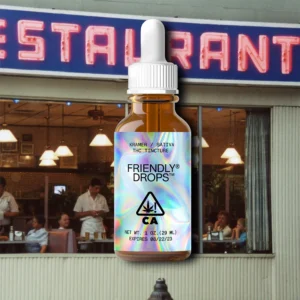Understanding the Difference Between Tinctures and Extracts
In our quest for natural health solutions, tinctures and extracts have become popular choices for their potent and beneficial properties. But what exactly are these products, and how do they differ from one another? Let’s dive into the details to understand the difference between tinctures and extracts.
What Is a Tincture?
Definition and Composition
A tincture is an alcoholic solution of a single herb or a blend of herbs. These herbs can be derived from various plant materials, including seeds, leaves, resins, flowers, and even plant roots. The active ingredients are extracted by infusing the plant material in a solution of water and pure alcohol, resulting in a potent, liquid herbal remedy.
How to Use a Tincture
Tinctures are widely used in phytotherapy, which involves using plant-based remedies to promote health. They can be added to beverages, dietary supplements, and cosmetics. Tinctures are popular for their rapid action and ease of use, as they come in drop form, allowing for quick consumption and precise dosage adjustments.
Dosage of Tincture
Tincture dosage is typically administered in drops. For example, you might take 10 drops daily or 20 drops twice a day. One teaspoon provides roughly 40 drops. Tinctures can be diluted in water or herbal tea and taken before, during, or after meals.
What Is an Extract?
Definition and Composition
An extract involves removing the active ingredients from plant material by dissolving them in a liquid, resulting in a concentrated liquid form. This liquid, or extract, can also be dried and processed into a powder. Extracts often indicate the plant material used and the ratio of plant material to extraction liquid (e.g., a 4:1 ratio).
How to Use an Extract
Similar to tinctures, extracts are used in herbal medicine to improve health. Many extracts include therapeutic mushrooms like lion’s mane, chaga, and reishi, which offer antioxidant, anticancer, and antiviral properties. These extracts can be an excellent health supplement, supporting the immune system and enhancing vitality.
Dosage of an Extract
Extract dosage is usually administered in drops, similar to tinctures. Typically, you take between 10 and 40 drops daily, with one teaspoon holding about 40 drops. Extracts can be diluted in water or herbal tea and are best taken an hour before meals. If the extract is in dry powder form, the dosage is given in grams, with 0.5 to 1 gram added to 150 ml of boiling water to make a tea.
Conclusion
Both tinctures and extracts offer a natural and effective way to harness the power of plants for health benefits. Understanding their differences and how to use them can help you make informed decisions about incorporating these potent remedies into your wellness routine. Whether you choose a tincture or an extract, both provide a convenient and precise method to enjoy the benefits of nature’s healing properties.
If you’re looking for high-quality tinctures or extracts, we have a variety of options to suit your needs. Explore our range and discover the natural way to enhance your health and well-being.

